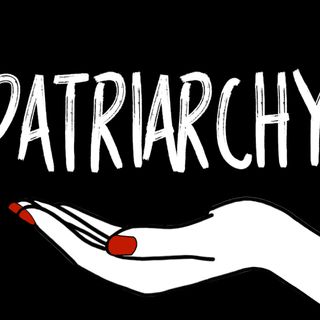If you think your boss is a psychopath, you might not be totally wrong. According to some estimates, one in every five bosses is a psychopath. However, new research suggests that these bosses are more likely to be male — not because men are more likely to be psychopathic, but because a male leader with psychopathic tendencies will be rewarded for his behavior, while a female boss will be condemned and punished for the same (surprise, surprise).
Contrary to popular belief, the term psychopath does not necessarily refer to a crazy person. Some common characteristics of psychopathic personalities include dominating others with confidence, being impulsive without guilt, and lacking empathy. Across all the studies that the authors reviewed, these were traits seen as part of being the boss of an organization. They were also seen as part of being a man.
“Aggressive behavior is seen as more prototypical of men, and so people allow more displays of that kind of behavior without social sanctions,” says Dr. Peter Harms, associate professor of management at The University of Alabama. “If women behave counter to gender norms, it seems like they get punished for it more readily.”
Essentially, if male leaders display psychopathic behavior they’re often in alignment with gender norms, whilefemale leaders portraying such tendencies are seen as hostile and spiteful.
The team further analyzed whether there were optimal levelsof psychopathy that were seen as beneficial in leadership, and if gender played a role in what was considered acceptable leadership traits. They found that while these characteristics help people rise through managerial ranks to higher posts of power, that did not equate to them being effective leaders. In fact, they were less effective as leaders: While psychopathic tendencies don’t seem to have any positive or negative impact on how a company functions, subordinates of those who exhibit these traits tend to hate such bosses, and are unimpressed by their tactics.
What piqued the researchers’ attention was how these psychopathic tendencies in men helped them climb the corporate ladder, emerging as leaders, while women with such traits were seen negatively.
“The existence of this double standard is certainly disheartening,” says lead author Karen Landay, doctoral student in management at the university. “I can imagine that women seeking corporate leadership positions getting told that they should emulate successful male leaders who display psychopathic tendencies. But these aspiring female leaders may then be unpleasantly surprised to find that their own outcomes are not nearly as positive.”
So there you have it, even when women naturally display traits typically perceived as masculine and associated with advancement, they can’t get ahead. In fact, this is hardly the only area where gender biases manifest, when it comes to the workforce. Female bosses are also paid substantially less than their male counterparts. According to a study, 70% male Indian employees prefer male bosses to working under women leaders. Perhaps that’s due to lack of experience with women at the top; only 12.4% of board seats, and a meager 3.2% of board chairs, were women in 2017.
The study authors say their findings should make us reconsider not just what is seen as good behavior from women, but also what is thought of as good behavior from men.
“We should be more aware of and less tolerant of bad behavior in men,” concludes Harms. “It is not OK to lie, cheat, steal and hurt others whether it is in the pursuit of personal ambition, organizational demands or just for fun.”




